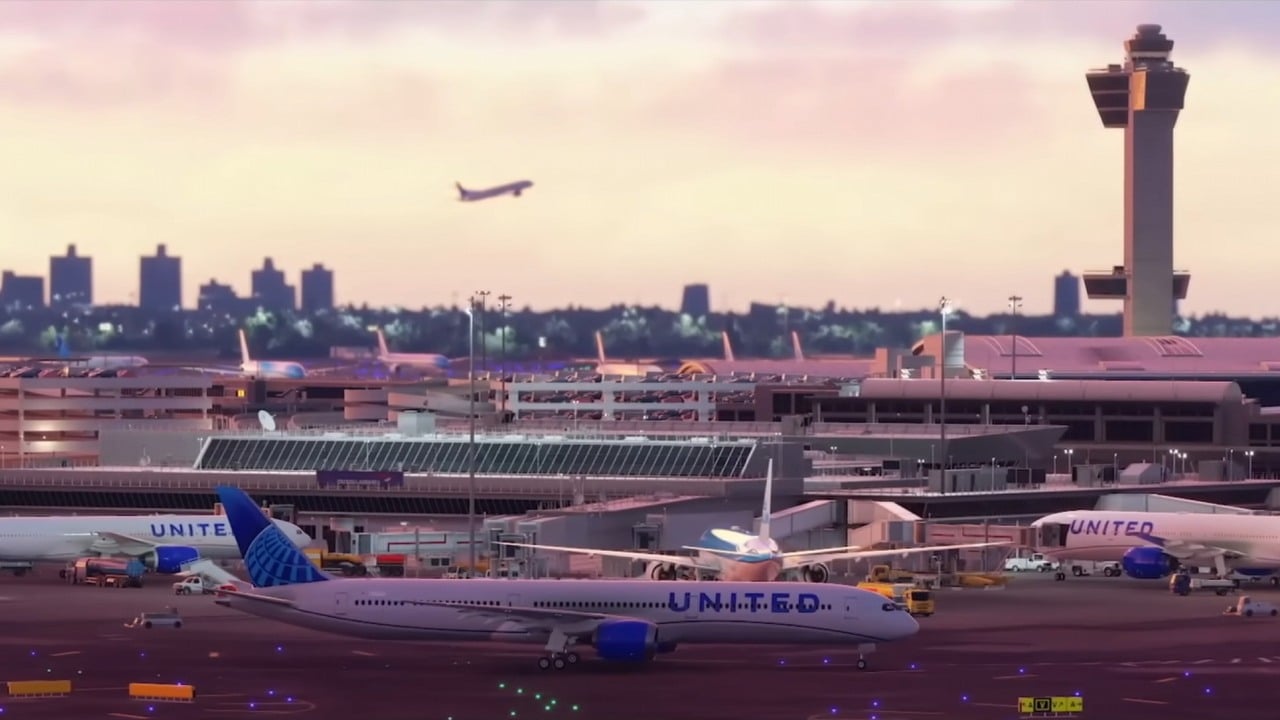Installing MSFS 2024 on Other Drives than C Is Problematic. Storage Issue with Cache Explained
If your C drive suddenly has no free space left, it can be caused by MSFS 2024. Here you will learn why it happens and how to alleviate this issue.

Aviation is a relatively fresh achievement of humanity. People are fascinated by airplanes and many of us would like to experience it firsthand, yet flying our own plane is not only hard to do but also very expensive. Microsoft has been offering Flight Simulators since 1997, giving us at least a gist of this feeling. However, the latest part in this series, MSFS 2024, had a very hard landing. Including problems with not working planes, issues with launch, or even very slow downloading. There is at least one more difficulty that we’ll have to face – the game eating up space on C drive. Let’s focus on this specific challenge and analyze how cache works in this production.
C drive cache in MSFS 2024 explained
In 2020 Asobo Studio amazed fans of aviation with Microsoft Flight Simulator. They opened the whole world to fly around with accurate geographical data thanks to information about terrain and objects streamed directly from their servers. This, however, didn’t prevent the game itself from chewing disk space like crazy. Even though storage requirements for MSFS 2024 are 3 times smaller, it can still fill up your C drive free space. Why? The answer is cache.
When you initially download the game and choose the directory, it will only install the main components there, even if you have selected a different drive than C. What is important is that the game still streams data to AppData location on C drive:
C:\Users\<your_username>\AppData\Roaming\Microsoft Flight Simulator 2024
With how sophisticated and detailed the world in MSFS 2024 is, the amount of data that is streamed can be significant. There is a way to deal with it, though.
Changing cache location in MSFS 2024
Changing cache location from in-game settings menu is one thing, yet it still doesn’t move planes, airports, scenery and others that are being streamed. Cunning players have thought of a more permanent solution for this issue which includes creating a symlink that will “reroute” streaming to the directory of your choosing.
A bit of trivia: Symbolic link, or actually a Directory Junction in our case, is a link that “disguises” one directory as another. If you would like more information, you can visit Microsoft site describing the command.
To implement this solution, you have to:
Creating symlinks can be a delicate operation that has potential to completely break your game, so keep it in mind as you’re doing it at your own risk!
- Open the roaming location of the game (as mentioned above),
- Copy all the contents of “Microsoft Flight Simulator 2024” folder to the desired destination,
- Delete the original “Microsoft Flight Simulator 2024" folder from Roaming location,
- Open CLI (Command-line interface) of your choosing as an administrator (Terminal, Command Prompt, Powershell) and run the following line:
mklink /j "link" "target"
for example:
mklink /j “C:\Users\<your_username>\AppData\Roaming\Microsoft Flight Simulator 2024” “D:\Games\Microsoft Flight Simulator 2024 Cache”
With that done, you should be all good to go, deceiving MSFS 2024 and streaming all data to your desired folder. It is possible that many players have experienced crashes related to insufficient amount of free disk space, so this has the potential to prevent at least some of them, but don’t get your hopes too high.
Interestingly enough, the same solution was working in MSFS from 2020. It is puzzling that this hasn’t been facilitated in the most recent title. Considering how many problems it has, though, it shouldn’t be surprising that this functionality, expected by many fans, hasn’t been addressed (at least yet).
0

Author: Aleksander Kartasinski
Just a random from the depths of the internet who happens to be interested in video games like millions of other people on this planet. By sheer luck he was given a chance to write about them. Worked in IT department and supported users for way too long, but also given a chance to do some IT magic on a large scale in his free time. Interested in technology, games with intriguing mechanics, etymology, and linguistics.
Latest News
- End of remote work and 60 hours a week. Demo of Naughty Dog's new game was born amid a crunch atmosphere
- She's the new Lara Croft, but she still lives in fear. Trauma after Perfect Dark changed the actress' approach to the industry
- „A lot has become lost in translation.” Swen Vincke suggests that the scandal surrounding Divinity is a big misunderstanding
- Stuck in development limbo for years, ARK 2 is now planned for 2028
- Few people know about it, but it's an RPG mixing Dark Souls and NieR that has received excellent reviews on Steam, and its first DLC will be released soon


